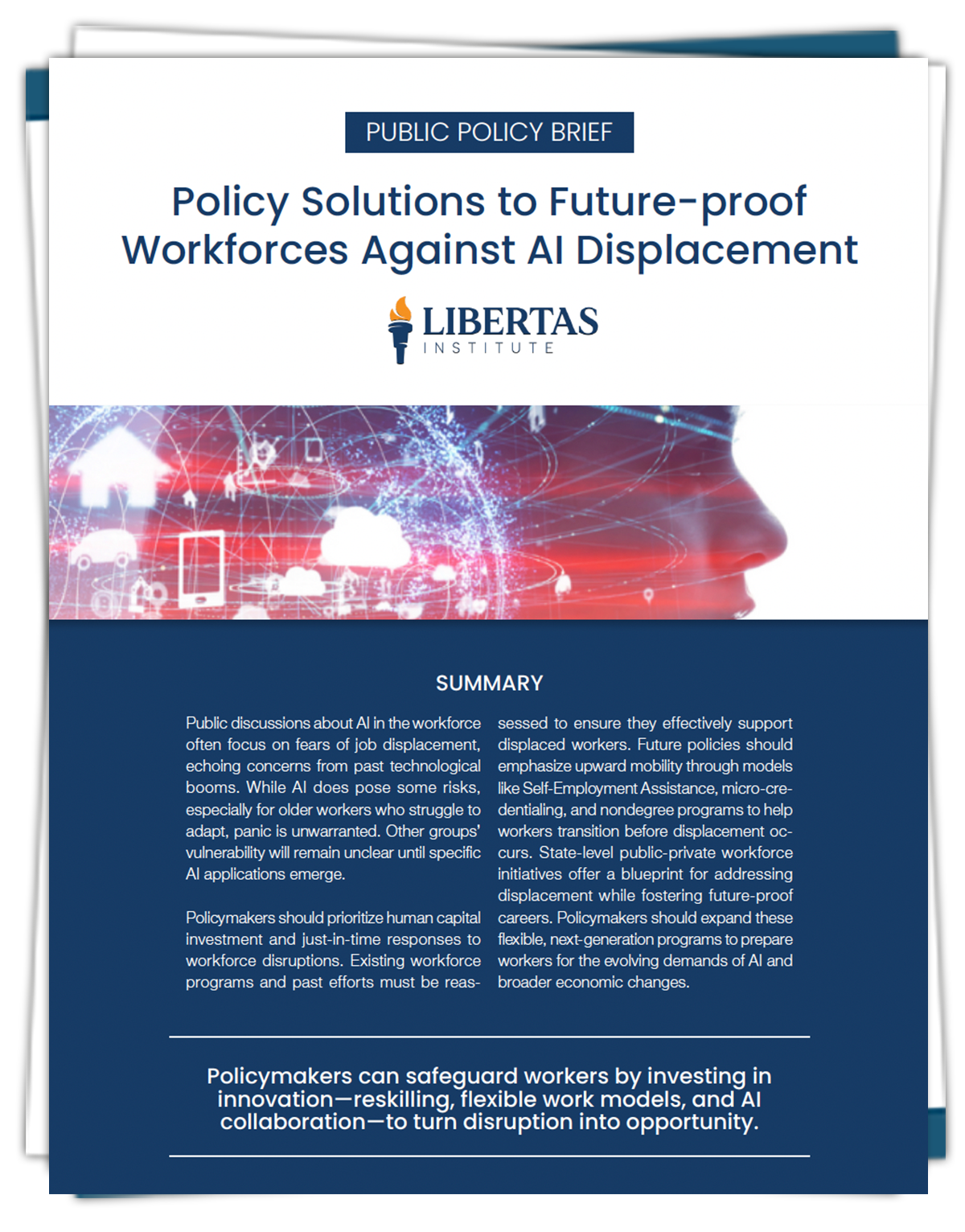Authored by Caden Rosenbaum, Senior Policy Analyst at Libertas Institute
Public discussions about AI in the workforce often focus on fears of job displacement, echoing concerns from past technological booms. While AI does pose some risks, especially for older workers who struggle to adapt, panic is unwarranted. Other groups’ vulnerability will remain unclear until specific AI applications emerge.
Policymakers should prioritize human capital investment and just-in-time responses to workforce disruptions. Existing workforce programs and past efforts must be reassessed to ensure they effectively support displaced workers. Future policies should emphasize upward mobility through models like Self-Employment Assistance, micro-credentialing, and nondegree programs to help workers transition before displacement occurs. State-level public-private workforce initiatives offer a blueprint for addressing displacement while fostering future-proof careers. Policymakers should expand these flexible, next-generation programs to prepare workers for the evolving demands of AI and broader economic changes.





